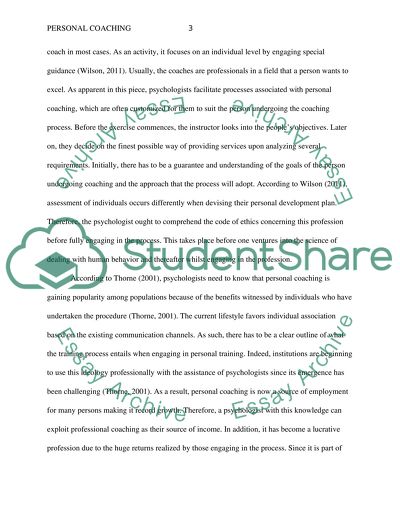Cite this document
(“Personal Coaching Profession Research Paper Example | Topics and Well Written Essays - 2500 words”, n.d.)
Personal Coaching Profession Research Paper Example | Topics and Well Written Essays - 2500 words. Retrieved from https://studentshare.org/psychology/1451305-personal-coaching-is-one-of-the-fastest-growing
Personal Coaching Profession Research Paper Example | Topics and Well Written Essays - 2500 words. Retrieved from https://studentshare.org/psychology/1451305-personal-coaching-is-one-of-the-fastest-growing
(Personal Coaching Profession Research Paper Example | Topics and Well Written Essays - 2500 Words)
Personal Coaching Profession Research Paper Example | Topics and Well Written Essays - 2500 Words. https://studentshare.org/psychology/1451305-personal-coaching-is-one-of-the-fastest-growing.
Personal Coaching Profession Research Paper Example | Topics and Well Written Essays - 2500 Words. https://studentshare.org/psychology/1451305-personal-coaching-is-one-of-the-fastest-growing.
“Personal Coaching Profession Research Paper Example | Topics and Well Written Essays - 2500 Words”, n.d. https://studentshare.org/psychology/1451305-personal-coaching-is-one-of-the-fastest-growing.


